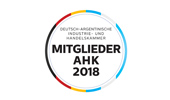On April 11, 2024, the Public Registry of Commerce (“PRC”) issued General Resolutions number 11/2024 (“Resolution 11/24”), 12/2024 (“Resolution 12/24”), 13/2024 (“Resolution 13/24” and together with Resolution 11/24 and Resolution 12/24, the “Resolutions”), which amend the regime for Simplified Corporations (Sociedades por Acciones Simplificadas) (“SAS”).
- Resolution 11/24:
Resolution 11/24 provides that the PRC exceeded its legal powers, both in the registration and control areas, and that this hindered the creation of new SAS. Therefore, Resolution 11/24 suspends Sections 2, 3, 4 and 5 of Resolution No. 3/2020, which established that the SAS must:
- Include the classes, modalities of issuance and other characteristics of the shares and, if applicable, their increase regime.
- To subscribe the amount and form of integration and, if applicable, the term for the payment of the balance due, mentioning the ownership of each shareholder and considering, if applicable, the cases of ownership of shares acquired by transfer or received released from integration.
Likewise, Resolution 11/24 repealed General Resolutions No. 9/20, 17/20, 23/20, 43/20, 44/20, 2/21, 4/22, 13/22 and 6/23 which provided, among other things, the following:
- That the initial capital stock of the SAS must be sufficient, and if its adequacy is questioned, the company must support it with a report prepared by a graduate in economic sciences, legally certified. This report must demonstrate the feasibility of starting up and disestablishing the company. In addition, it is prohibited to charge the costs of registration in the Public Registry to the initial capital and any additional contribution to the integration of the capital stock.
- SAS are required to obtain professional opinions in all procedures, are penalized for the lack of a registered head office, and are obliged to identify and keep their beneficial owners updated, under threat of severe penalties for false or non-declaration, without excluding additional legal actions.
- The requirement to submit the financial statements with an auditor’s report and file them digitally with the IGJ within fifteen (15) days after the date of the meeting of the governing body that approved them.
- The creation of a system to corroborate the existence and veracity of the domicile and registered office. The SAS that had not complied with this would be presumed inactive, no registration would be granted until the provisions of said resolution were complied with, and they would be reported to the AFIP as presumably inactive companies.
- A differentiated treatment in the process of transformation of SAS and a special optional procedure of intervention and bookkeeping.
- Resolution 12/24
Resolution 12/24 provides that the registration of SAS will be carried out through the filing of a public deed or a private document with signatures certified by a notary public or by an officer of the PRC.
In addition, Resolution 12/24 suspends the provisions of art. 32, inc. 1 of Resolution 6/2017 which contemplated the mechanism of incorporation of SAS by adoption of model bylaws and edict, until a new automatic registration system is implemented.
Resolution 12/24 approves a new model bylaws and publication in the Official Gazette.
- Resolution 13/24
Resolution 13/24 repealed General Resolutions IGJ No. 34/20, 35/20, 42/20, and 12/21, which established gender equality in the Administrative and Supervisory bodies of Private Legal Entities. In addition, the aforementioned General Resolutions were invalidated by the Courts on several occasions, and in the words of the PRC, they were an unnecessary administrative expense.
These Resolutions became effective on April 11, 2024.









